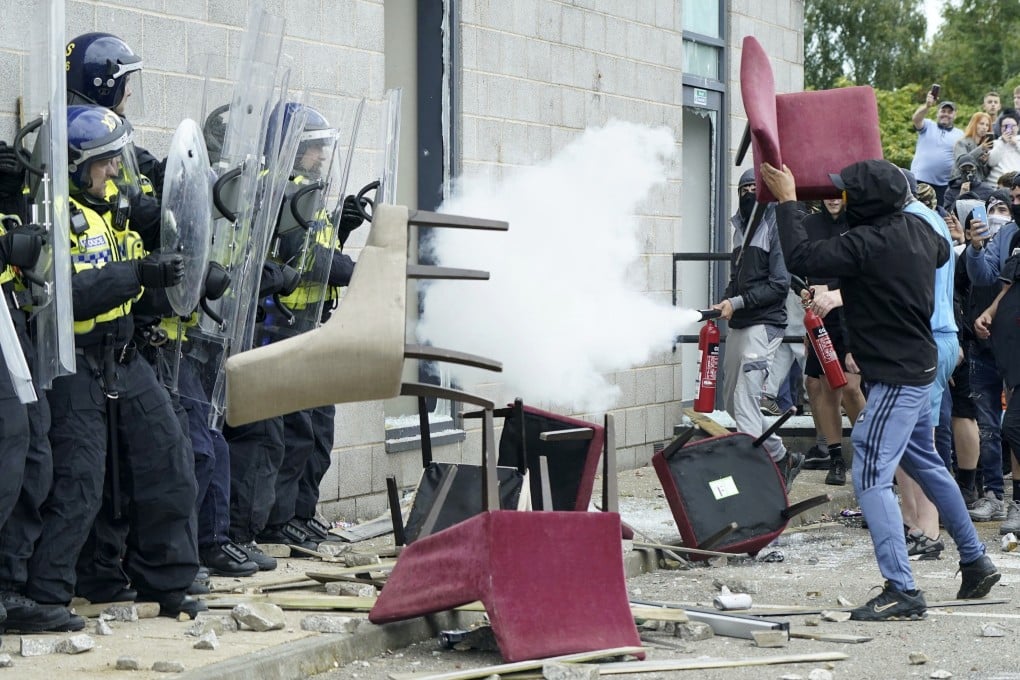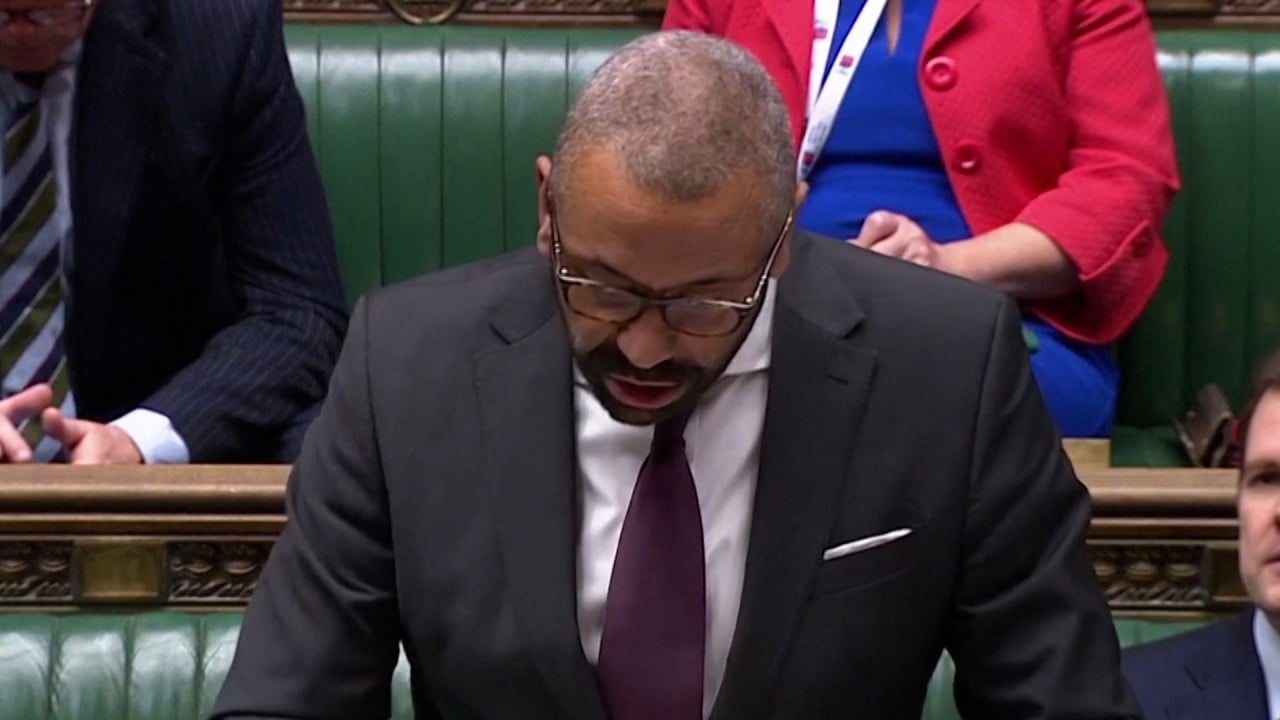Advertisement
Opinion | What the UK must do to curb anti-immigrant riots
- The new Labour government faces the tall task of restoring public trust and addressing the many festering issues left by its predecessor
Reading Time:3 minutes
Why you can trust SCMP
6

Parts of the United Kingdom have been engulfed by violence since last week, with several police officers and unarmed Muslim civilians being injured and property damaged in riots caused by far-right extremists in cities across the country.
Advertisement
The riots began after a 17-year-old British boy went on a stabbing spree in Southport on July 30, killing three girls and injuring eight other children and two adults. Despite the boy being born in Wales to Christian parents, far-right influencers and websites called him an undocumented Muslim immigrant and issued appeals to protect the country from immigrants.
Days later, a vigil for the girls who died was hijacked by far-right extremists who had travelled from other parts of the UK and went on to attack a mosque and police officers. More than 20 protests were planned across the UK, some descending into violence and destruction of property as nearly 100 rioters were arrested.
The crowds assembled at these protests appear to be disparate and contain people from a variety of backgrounds. While far-right extremists might be the public face of the protests, everyday British citizens also turned up, suggesting many people could be misled into attending these protests under the false pretences of saving Britain from outsiders. Telegram and other social media apps have been at the forefront of calls for protests and disseminating misinformation, yet it is important to note that the Southport attack and its aftermath were triggered by much deeper issues.
The Conservative Party had governed from 2010 until last month’s general election, introducing severe austerity measures and cuts to public spending during its tenure. The country’s public infrastructure steadily crumbled on the Conservatives’ watch, with Brexit and the Covid-19 pandemic adding to simultaneous crises in the housing, energy, healthcare and transport sectors, among others, which brought about a series of strikes in recent years.
The government’s response to these developments was to deflect blame by pointing the finger at high levels of immigration. One of the most prominent voices behind the government’s anti-immigration stance was Suella Braverman, the former British home secretary who was accused of fuelling far-right violence last year after calling pro-Palestinian demonstrators “hate marchers”. Other prominent anti-immigration figures include Nigel Farage, a leading campaigner for Britain to leave the European Union and founder of the far-right Reform UK Party, and Stephen Yaxley-Lennon, also known as Tommy Robinson, founder of the anti-Muslim English Defence League who fled the UK after being arrested under terrorism laws in July.
Advertisement

Advertisement

